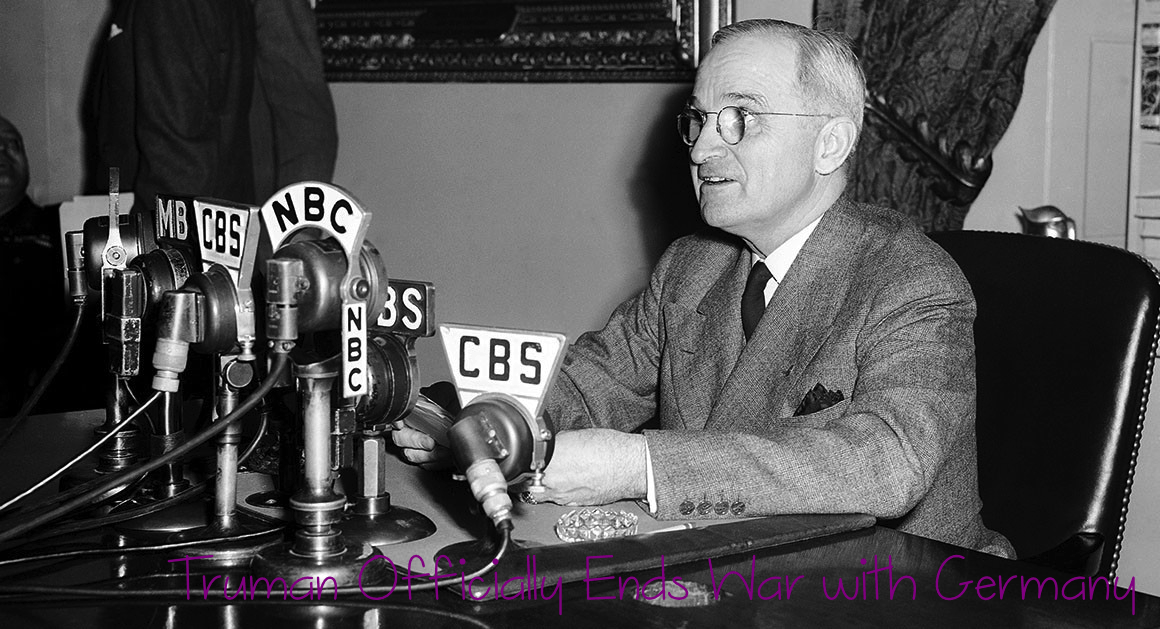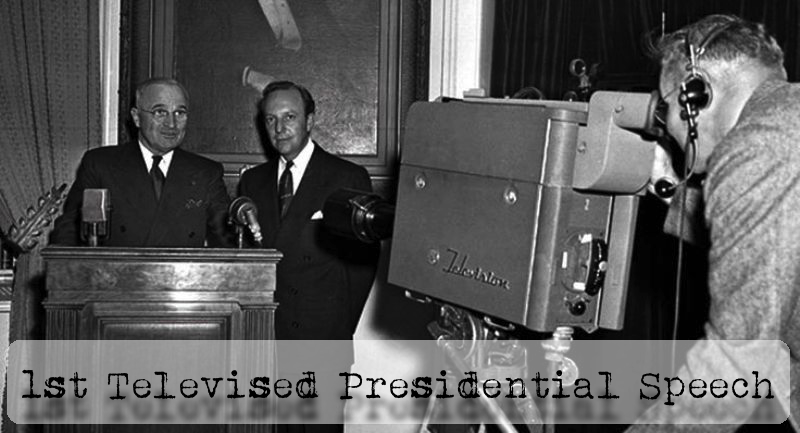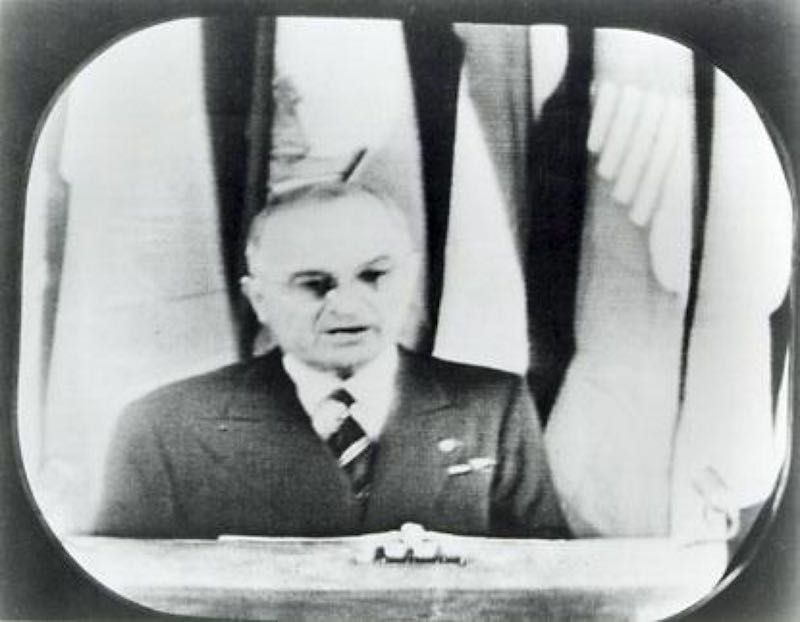Today in History: May 8, 1945
Today in History: May 8, 1945 – VE DAY “General Eisenhower informs me that the forces of Germany have surrendered to the United Nations.… Read More »Today in History: May 8, 1945
Today in History: May 8, 1945 – VE DAY “General Eisenhower informs me that the forces of Germany have surrendered to the United Nations.… Read More »Today in History: May 8, 1945
Today in History: October 24, 1951 – Truman Officially Ends War with Germany Six years after VE-Day (Victory over Europe) on May 8, 1945, President… Read More »Today in History: October 24, 1951 – Truman Officially Ends War with Germany
Today in History: October 5, 1947 – First Televised Presidential Speech Last week we discussed the first ever televised Presidential debate. Today marks the 71st… Read More »Today in History: October 5, 1947 – First Televised Presidential Speech
Today in History: September 4, 1951 – Truman Makes the 1st Transcontinental TV Broadcast From San Francisco, Truman’s opening conference speech was broadcast across the… Read More »Today in History: September 4, 1951 – Truman Makes the 1st Transcontinental TV Broadcast



